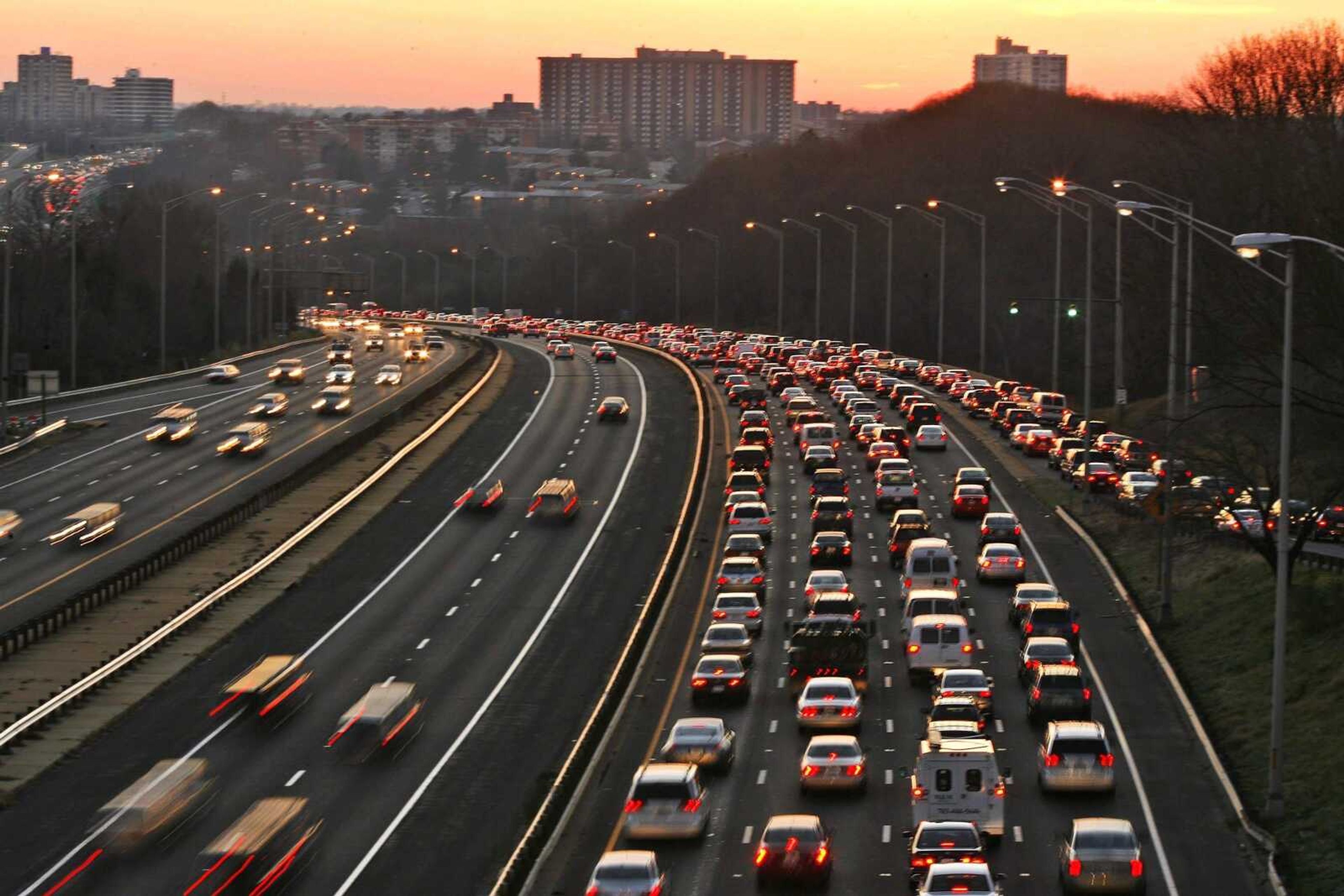D.C. officials plan for traffic crush on Inauguration Day
WASHINGTON -- On a typical weekday, hundreds of thousands of people commute to the nation's capital, snarling roads and packing subway trains and buses during peak hours. Imagine multiplying that several times for Barack Obama's inauguration Jan. 20...
WASHINGTON -- On a typical weekday, hundreds of thousands of people commute to the nation's capital, snarling roads and packing subway trains and buses during peak hours.
Imagine multiplying that several times for Barack Obama's inauguration Jan. 20.
"I don't want in any way to discourage anyone," said the District of Columbia's city administrator, Dan Tangherlini. "I just don't want them to come and be completely shocked by what they find."
It won't be pleasant, Tangherlini and other officials say.
The Washington area's transit system is telling passengers to expect extraordinarily long lines for trains and buses. Airports will be bustling with extra flights. Traffic could be at a standstill as motorists cope with street and bridge closings. Those who do manage to arrive in Washington will find limited parking.
"Pack your patience" is the advice from Corinne Geller, a Virginia State Police spokeswoman.
Amtrak is expanding service between Boston and Washington on Inauguration Day. Southwest Airlines is adding 26 flights to and from the region between Jan. 17 and Jan. 23. Delta Air Lines and its subsidiary, Northwest Airlines, are adding more than 5,000 seats Jan. 16 and Jan. 21 by using larger aircraft on existing flights. Airport officials say they will add staff to help guide travelers.
Virginia State Police plan to bring troopers from across the state to monitor expected gridlock outside Washington, Geller said. Maryland transportation officials are urging truck drivers and other commercial drivers to avoid the area.
Major bridges into the city, such as the Roosevelt, Memorial and inbound Key bridges, will be open only to buses and official inaugural traffic, Tangherlini said. A complete list of road closures will be released early this week, according to the Secret Service.
Prepare for the unexpected, authorities and inaugural organizers say.
"We also recommend developing backup plans in case your original travel plans need to be changed at the last minute," the Joint Congressional Committee on Inaugural Ceremonies said in a recent advisory.
Given the impending headaches, some would-be revelers are staying home.
Larry Froneyberger of Atlanta planned to pick up his 68-year-old grandmother, Francine, from High Point, N.C., on his way to the inauguration. They were going to stay in Baltimore and take the train into Washington.
She was excited about the prospect of witnessing the first black president, especially because she grew up during a time when that seemed impossible, Froneyberger said. But with her slow stride due to foot surgery last year, the transportation situation was too overwhelming.
"It's going to be a lot of waiting and she was like, 'I just can't do it,"' Froneyberger said.
Even cab drivers are thinking twice about working that day, said William J. Wright, president of the Taxicab Industry Group in Washington.
Wright said he has driven his cab during past inaugurations -- including John F. Kennedy's -- but based on what he's hearing, he expects gridlock for this one to be the worst.
"I don't see how a cab driver can make any money, to be honest with you, because he can't go anywhere," he said.
Others are willing to brave it, despite the many inconveniences.
Tony Vincent of northeast Washington said he will take the subway into Union Station, where he shines shoes. Depending on how many people step on his shoes on the packed train, he may need a polish of his own, he said.
"I know it's going to be crazy," he said. "It might be a little uncomfortable."
While government workers are off that day, some sectors are requiring employees to show up.
Nicholas Ramfos, who heads Commuter Connections, a not-for-profit group that coordinates commuter programs in Washington, is recommending that employers allow workers to telecommute or shift their hours outside of peak inaugural travel time.
Besides biking or public transport, he suggests people take a look at his group's car pool list to find others who work or live near them.
For some people, leaving the city isn't an option.
Emily Durso, president of the Hotel Association of Washington, D.C., said hotels will be fully staffed, with many people working multiple shifts. Her group represents 97 hotels in Washington, and she said a number of them plan to set up cots for employees at the hotels or in empty apartments.
"We've never had anything like this," she said. "It's just a whole different animal in many ways."
------
Associated Press writers Dena Potter in Richmond, Va., and Brian Witte in Annapolis, Md., and AP Airlines Writer Harry R. Weber in Atlanta contributed to this report.
------
On the Net:
Joint Congressional Committee on Inaugural Ceremonies: http://inaugural.senate.gov/
District of Columbia: http://inauguration.dc.gov/index.asp
Connect with the Southeast Missourian Newsroom:
For corrections to this story or other insights for the editor, click here. To submit a letter to the editor, click here. To learn about the Southeast Missourian’s AI Policy, click here.









